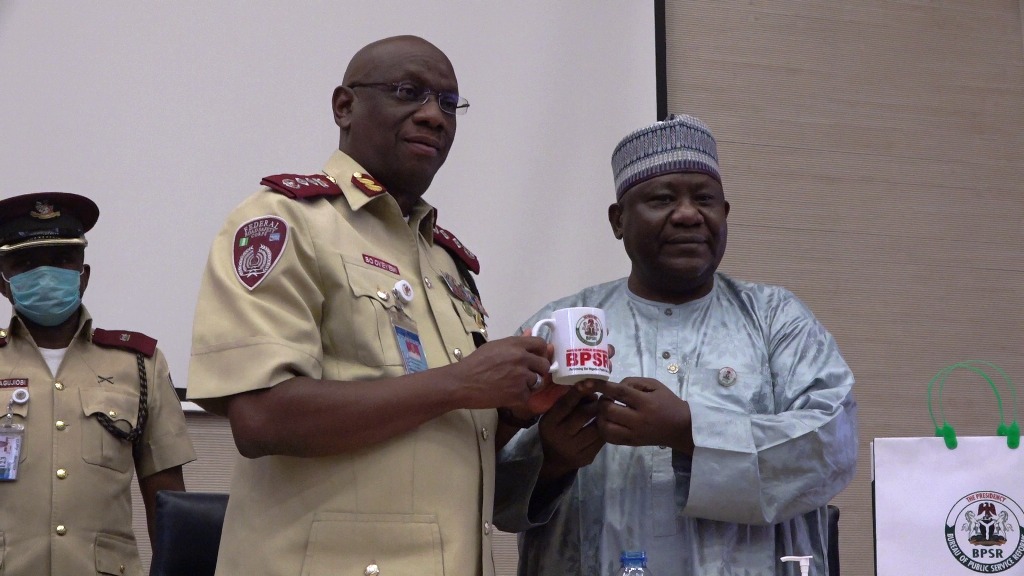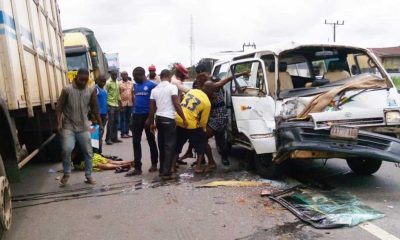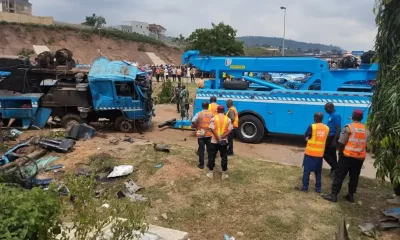Digitalisation has enhanced services, reduced fatalities, FRSC says.
The Federal Road Safety Commission (FRSC), says the application of modern technologies and digitalisation of its operations has resulted in reduced road fatalities and crashes, enhancing efficient service delivery.
Corp Marshal of FRSC, Dr Boboye Oyeyemi, said this during the FRSC presentation at a seminar on “Application of Modern Technology and Digitalisation by the FRSC in reducing road traffic crashes in Nigeria”.
The seminar was organised by the Bureau of Public Service Reforms (BPSR) on Tuesday in Abuja.
Dr Oyeyemi listed ways by which the commission had digitalised its services to include: UHF/VHF Communication, Use of Radar gun for speed limit Enforcement and Computerised production of National Drivers Licence.
Others are the National Drivers Licence Database, National Vehicle Identification Scheme, Offenders Register Digitalisation and Duty Room Information Management System (DRIMS).
The Corps Marshall said the list also includes the Digital Dashboard, Adoption of QMS, Digitalisation of Staff APER, Adoption of CUG, Road Transport Safety Standardisation Scheme (RTSSS) and a Robust website.
He also listed Installation of V-sat in all the commands, Digitalisation of fine collection/e-payment platform and Toll free call Centre (122).
Others are the introduction of Driving School Standardisation Programme, Adoption of digital applications 24 (portals) and the E-library.
According to him, the list also includes adoption of internet-enabled Body-worn camera, Development of the Nigeria Road Safety Observatory and Enhanced Road Safety data collection system.
He, however, observed that though many Nigerians were resistant to changing from the analogue to digital means of operation, the commission is gradually convincing them of the need to adopt the changes.
“One of the challenges is resistance to change.
“A lot of people still believe they must live in that monolithic way of doing things and that is what I call ‘exclusive disorder’.
“They don’t want to change; people are still resisting the current technology and there is a wide gap in respect of this by 50 per cent.
“Paucity of Funds: Not all MDAs have the way to do this; so, the funding is another problem.
“In my earlier discussion, I spoke about inadequate capacity and equipment; not all MDAs have this either.
“Then long transition time – it depends; the leadership determines how you can migrate from the analogue to the digital.
“And the procurement hurdles – you must be ready to face the BPP (Bureau of Public Procurement) and justify what you want to do.”
The Corp Marshal gave recommendations for successful transition from analogue to the digital form of technology to enhance service delivery.
“For my recommendation, I believe digitalisation should be prioritised; e-governance should be mandated.
“Funding for the MDAs should be increased, capacity development of personnel on IT should be upscaled and Human Capacity Development should be sustained.
“Top management buy-in; the leadership is very critical, so top management buy-in should be emphasised,” Boboye said.
National Daily reports that the Federal Road Safety Corps has digitalised its entire operations in line with the United Nations Road Safety Trust Fund, with recommendation of technology as a key factor in its Global Framework Plan of Action for Road Safety Management enhancement.
Earlier, the Director-General of BPSR, Mr Dasuki Arabi, said digitalisation in highways generates enormous data from heterogeneous sources like sensors, vehicle-to-vehicle communication, and road infrastructure.
He said such data could be employed for predicting the traffic flow, crash accidents and travel time and this is attainable by integrating deep learning and vision nodes.
“We deliberately brought Road Safety Corps here to showcase them as one of those agencies of government that has agreed to transform; they have transformed and they are transforming.
“Now, we want to use this opportunity to see and encourage other agencies of government to do what Road Safety Corps is doing.
“Especially, to be ambassadors and good outlets for actualising the e-government master plan of the Federal Government, that is using technology to drive their services, to run their services so that we will collectively move together to 2030 deadline of of paperless Federal Public Service in Nigeria,” Arabi said.

 Football1 week ago
Football1 week ago
 Health & Fitness1 day ago
Health & Fitness1 day ago
 Featured5 days ago
Featured5 days ago
 Comments and Issues7 days ago
Comments and Issues7 days ago
 Education6 days ago
Education6 days ago
 Business6 days ago
Business6 days ago
 Crime6 days ago
Crime6 days ago
 Business5 days ago
Business5 days ago













